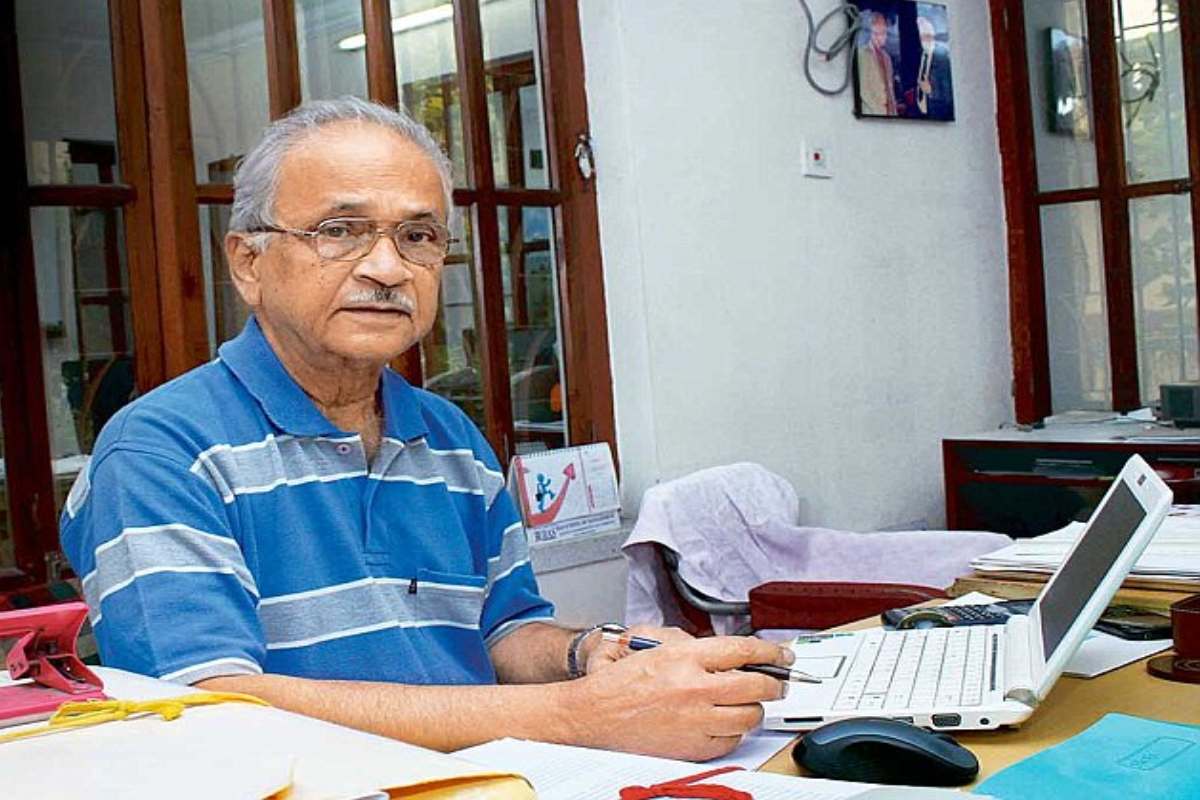WHO estimates that the oral rehydration therapy, which Dr Dilip Mahalanabis pioneered, has saved more than 60 million lives.

Dilip Mahalanabis was a practicing paediatrician who pioneered the use of oral rehydration theory for the treatment of diarrhoeal diseases(https://twitter.com/kvijayraghavan)
Dilip Mahalanabis, the doctor who introduced the life-saving oral rehydration solution (ORS), is no more. He died in Kolkata on Sunday, 16 October, aged 88.
Dr Mahalanabis, a pediatrician, pioneered the use of oral rehydration theory for treating diarrheal diseases.
He was admitted to a private hospital in Kolkata a couple of weeks ago with age-related ailments, including lung problems.
Dr Mahalanabis’s life-saving contribution to public health came during India’s war with Pakistan in 1971. A wave of cholera had then swept through several parts of the country.
The doctor was then attached to a refugee camp at West Bengal’s Bangaon on the Indo-Bangladesh border. Even as several people died of severe dehydration, he led the Johns Hopkins Centre’s efforts to demonstrate the life-saving effectiveness of oral dehydration therapy.
The doctor prepared a oral solution mixing salt and sugar, which worked like magic. The solution checked the fatality rate of cholera. The life-saving mix later became popular as ORS.
“Over 3,000 people with cholera received ORT in this way. The mortality rate was 3.6 percent among those given ORT compared with 30 percent in those given IV fluid therapy.14/n
— K. VijayRaghavan (@kvijayraghavan) October 16, 2022
Mahalanabis says: “The process was not easy as it deviated from the traditional treatment methods for diarrhea and cholera. I had to spend years working on the project, making experts and scientists believe it can do wonders for patients suffering from intestinal diseases.”
— K. VijayRaghavan (@kvijayraghavan) October 16, 2022
Oral Rehydration Therapy — or ORT — is providing the solution to a patient to prevent and correct the diarrhea-induced dehydration.
Dr Mahalanabis completed his degree in MBBS from Calcutta Medical College and Hospital in 1958. Later, he secured his Diploma in Child Health from London.
In the mid-1980s and early 1990s, he was a medical officer of the World Health Organization (WHO)’s Diarrheal Disease Control Programme. Later in the 1990s, he served as the Director of Clinical Research at the International Centre for Diarrheal Disease Research (ICDDR, B), Bangladesh.
He was awarded the Pollin Prize in 2002 and Prince Mahidol Award in 2006. He was elected as a foreign member of the Royal Swedish Academy of Sciences in 1994.
WHO has calculated that oral rehydration therapy has saved more than 60 million lives.

May 16, 2024

May 16, 2024

May 16, 2024

May 15, 2024

May 12, 2024

May 12, 2024